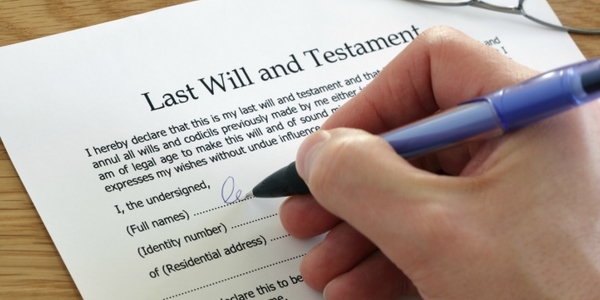At Perrys Chartered Accountants, we have extensive experience in the administration of probate on all sizes of estate. Our sensitive, efficient probate service is designed to make the process as swift and simple as possible.
Our seven branch network prides itself on offering an exceptional fixed-fee service and you can rely on us to act with discretion and empathy throughout the Probate process.
We take the time to get to know our clients, making us among the few probate practitioners in London and Kent to have a real appreciation of our clients, their intentions and their specific needs.
Our Probate service includes:
- Advice, support and assistance with estate administration and paperwork
- Advice and support for the estate executor/administrator
- Acting as executor and/or trustee for those clients wishing to retain a professional executor to assist the family/beneficiaries in dealing with Probate and estate administration
- Advice on the use of Trusts for tax and succession planning
The Audit Regulations can be accessed at www.icaew.com/regulations and the Ethical Standards can be accessed at www.frc.org.uk.
The Probate Process
Probate is the name given generally to the process of administering an individual’s estate after death and applying for the Grant of Probate. In reality, this can include a wide range of responsibilities including:
- Registering the death and notifying any relevant organisations.
- Locating a copy of the Will (where applicable) and ensuring that it is valid/the deceased’s last Will.
- Coordinating any funeral arrangements.
- Identifying and tracking down any beneficiaries/potential beneficiaries under the Will or the rules of intestacy (where the deceased died without leaving a valid Will).
- Obtaining details of the deceased’s assets and liabilities.
- Identifying any gifts made by the deceased in the seven years prior to death (or fourteen years in certain circumstances) for the purpose of completing the Inheritance Tax return.
- Preparation and submission of the Inheritance Tax return and settling any liability due.
- Applying for the Grant of Probate where there is a valid Will or Letters of Administration in the absence of a valid Will.
- Finalisation of the deceased’s personal tax affairs up to the date of death, including the submission of any outstanding self-assessment tax returns.
- Realising any assets and settling any outstanding liabilities.
- Dealing with any potential disputes or claims over the estate.
- Calculating any income tax or capital gains tax liabilities due for the period of administration.
- Preparing estate accounts and providing copies to beneficiaries.
- Making distributions to beneficiaries.
Probate Without a Will
When a person dies without a valid Will, this is known as being ‘Intestate’. In cases of Intestacy, there is a set of rules to determine who can administer and benefit from the estate.
Rather than a Grant of Probate, you will be required to obtain ‘Letters of Administration’ in order to proceed with accounting for assets and liabilities.
Depending on the size of the estate and potential beneficiaries in an Intestacy case, the process is often more complex than where a Will is available.
Trusts
Trusts can be incorporated in a will and there are different types of trust that can be set up depending on your circumstances.
A will trust is an arrangement granting trustees control over assets on behalf of others known as ‘beneficiaries’.
It provides flexibility to specify what the trust provides for each beneficiary or allows trustee discretion on the distribution of assets.
Trusts can include:
- Named individuals
- Calls of people e.g. ‘Grandchildren.
- Charities
- Organisations like sports clubs or companies
It even makes it possible to plan for descendants not even born yet and future generations.
The creation of a trust in a will can offer a number of benefits in securing assets including:
- Minimising inheritance tax and taking advantage of tax relief.
- Protecting assets from creditors or divorcing partners.
- To help ensure state benefits of beneficiaries are not interrupted by inheritance.
Read more about Trust Planning
Inheritance Tax Planning
A well written will helps to ensure efficient Inheritance Tax Planning. Tax can be levied on an estate when it comes to including property, money, and possessions when someone dies. It is important to seek professional advice to understand certain thresholds and how to be most efficient. Remember, for a UK domiciled person this applies to worldwide assets such as holiday homes abroad. You should discuss the implications of who and how you leave assets and think about a spouse, partner, children, family members, friends and business partners.
For example, gifting money to beneficiaries within seven years of a death is included in the value of an estate after death.
Read more about Inheritance Tax Planning
Wills
If you pass away without leaving a will, the law decides who inherits your estate. Making a will ensures your assets go to the people you care about the most.
There’s a lot to consider when writing a will, especially when taking into account large sums of money, property, and business interests.
Here’s what you might need to consider:
- Who inherits your estate and at what age.
- Who should become guardian of children under 18 years of age.
- How a spouse is provided for plus protecting a child’s inheritance in the event of remarriage or divorce.
- Who should act as executor(s) for the estate and/or trustee(s) for any trust which may arise.
- The type of business and what happens when an owner dies.
- Providing for a spouse, partner, or family not included in a business relationship.
- The most tax-efficient way to pass wealth such as using trusts or business relief.
Correct planning and will writing make administration much easier once a person is deceased while helping to protect loved ones and share assets in the most tax-efficient manner.
Lasting Power of Attorney (LPA)
Lasting Power of Attorney, also known as LPA, enables you to appoint a person you trust to make decisions about health, welfare, and finances if you are unable due to mental incapacitation.
Without an LPA no one can operate your finances or business interests without a court order, not even a spouse. This can be a particular problem if people rely on you to make decisions, sign cheques, and make payments.
It is possible to have a separate financial and health LPA which enables different people to make decisions on these affairs.
How long does probate take?
Every estate is different, and this can vary significantly depending on a range of factors, including whether there is a Will, the volume and complexity of the assets and liabilities, availability of information, any claims over the estate and/or disputes amongst beneficiaries. For a typical estate with a Will in place, on average the process of probate takes around a year from the date of a death until the estate is distributed.
FAQ about Wills and Probate
How long does probate take?
Every estate is different, and this can vary significantly depending on a range of factors, including whether there is a Will, the volume and complexity of the assets and liabilities, availability of information, any claims over the estate and/or disputes amongst beneficiaries. For a typical estate with a Will in place, on average the process of probate takes around a year from the date of a death until the estate is distributed.
Do I need a solicitor for probate and a will?
No, you don’t require a solicitor for probate and/or a will. The paperwork for estates can be complex so it is recommended for you to use a qualified professional such as a solicitor or accountant for advice.
What happens if there’s no will and no probate?
When a person dies without leaving a will the estate is shared out according to the rules of intestacy. If the total value of the assets is classed as a ‘small estate’ probate is not required and ownership is passed to the beneficiary based on the rules of intestacy. Although, the probate process can be more complex in the absence of a will.
Is probate needed if there is a will?
A will does not affect whether probate is or is not required. Probate is a legal document granting a person legal authority to wind up the affairs of a deceased person. The document is called Grant of Probate if there is a will, and a Grant of Letters of Administration without a will. Whether probate is required comes down to two things: 1. How the assets are owned – Assets held in joint name with someone who is still alive, automatically pass to the co-owner under the Right of Survivorship. 2. Value of the assets – If the estate’s total assets fall under the Probate threshold and is classed as a ‘small estate’ then probate is not required. Generally, an estate less than £5,000 does not require probate.
What’s the difference between a will and probate?
The difference between a will and probate is simple. A will allows the testator ‘person writing the will’ to record their wishes once they are deceased. Probate allows the executor or personal representative to action the wishes recorded in the will.
Probate Specialists
An Executor or Administrator of an estate is entitled to engage a professional to assist them with the probate process, and the fees are usually settled out of the deceased’s estate. At Perrys Chartered Accountants, our expert team – located across each of our seven branches in London and Kent – has the experience and skill required to meet the individual needs of any kind of estate and will be able to identify the best way to proceed based on your circumstances.
Our Branches
 Historic Dockyard Chatham
Suite 2, Second Floor North,
Historic Dockyard Chatham
Suite 2, Second Floor North,The Fitted Rigging House,
Anchor Wharf, The Historic Dockyard,
Chatham, Kent,
ME4 4TZ
 London
4th Floor,
London
4th Floor,399-401 Strand,
London,
WC2R 0LT
 Orpington
2nd Floor (Right), Downe House,
Orpington
2nd Floor (Right), Downe House,303 High Street,
Orpington,
Kent,
BR6 0NN
 Tonbridge
Churchdown Chambers,
Tonbridge
Churchdown Chambers,Bordyke,
Tonbridge,
Kent,
TN9 1NR
 Tunbridge Wells
10 Upper Grosvenor Road,
Tunbridge Wells
10 Upper Grosvenor Road,Tunbridge Wells,
Kent,
TN1 2EP
 West Malling
19-21 Swan Street,
West Malling
19-21 Swan Street,West MaIling,
Kent,
ME19 6JU
 Wrotham
The Square,
Wrotham
The Square,Wrotham,
Sevenoaks,
TN15 7AA




